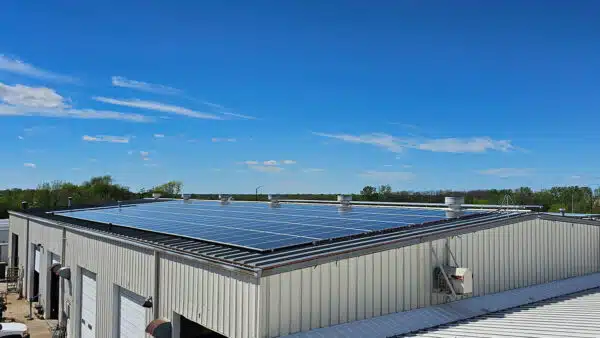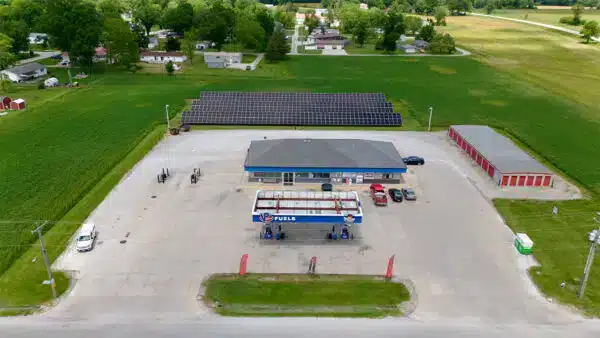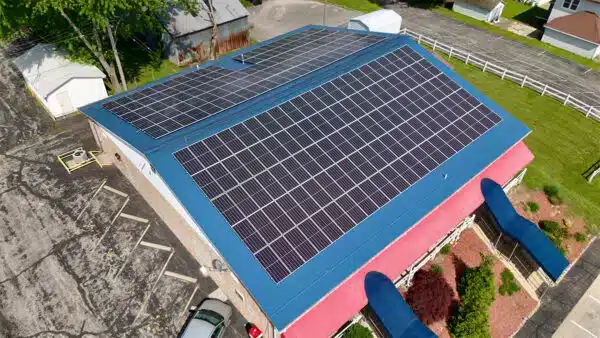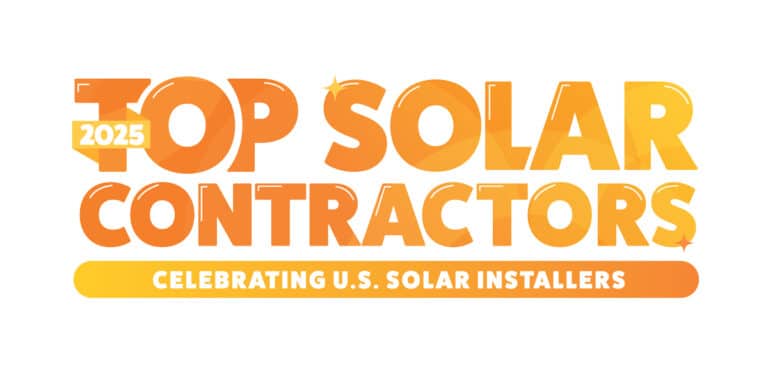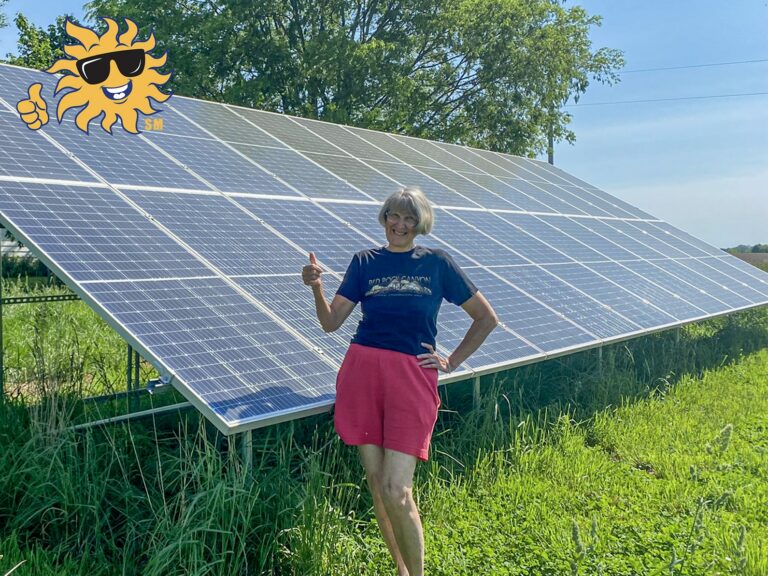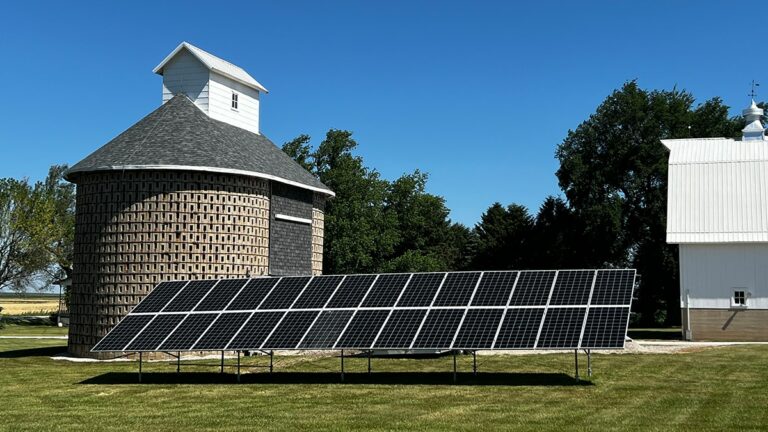Commercial Solar Power: Understanding the Return on Investment
In a world where central banks create money out of nothing, finding a safe investment is challenging. When businesses and building owners consider a solar investment, they often ask, “What’s the return on investment for a solar panel system? Is it worth it?” At Tick Tock Energy, we’re here to help answer those important questions.
The Benefits of Investing in Solar Power
Investing in your facility with solar and energy-efficiency solutions reduces electrical operating expenses and may provide a much higher return on investment (ROI) when compared to the cost of trying to acquire new customers for your business.
With solar panels from Tick Tock Energy, your business has access to a reliable and low-maintenance power generating system that can last 30 years and beyond. Investing in a solar power system has many benefits, and with great solar incentives in Illinois and other states, your business can easily invest and install a new system.
Electricity Cost Reduction
The #1 reason for installing solar is the long-term electricity savings resulting from your own on-site solar power generation. Imagine the the amount of money your organization will spend on electricity over the next 30 years. Your investment in solar can reduce this significantly and directly improve your financial bottom line.
Avoid Electricity Inflation
By investing in solar power, you can shield your business from unpredictable rises in electricity costs. Solar energy allows you to lock in a consistent energy rate, protecting yourself from future inflation and volatile and unpredictable electricity prices.
Reduce Your Operating Costs
With solar energy, your business generates your own power, reducing your reliance on the grid and lowering monthly utility costs. These savings can be redirected into other areas of the business, improving overall profitability.
Raise Your Property / Company Stock Value
Properties equipped with solar energy systems are often more valuable to buyers and tenants, as they offer reduced energy costs and a commitment to sustainability. This added value can lead to higher selling prices or rental rates. Similarly, company stock price can be boosted by lowering your electricity costs.
Turn Sunshine Into CashflowSM with Solar Power
With your own solar power system, you can protect your business from electricity inflation, reduce your operating costs, capture great tax incentives, and receive income from Solar Renewable Energy Credits (SRECs). Let’s break down how you can estimate your ROI for solar.
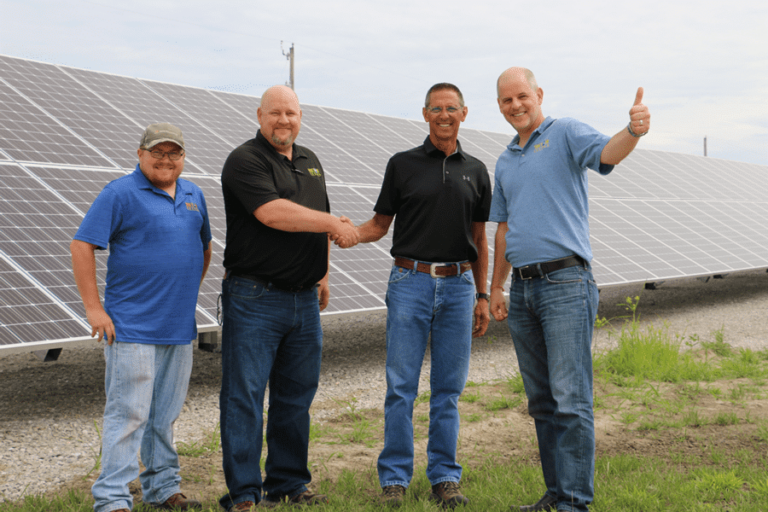
Factors to Consider for Return on Investment
Your business will likely experience a host of benefits, like higher building rents, marketing opportunities, and more. When estimating the cash flow of a solar project, it’s essential to consider the following factors:
- Annual electricity cost savings
- Annual operating costs
- Investment Tax Credit (ITC)
- 5-Year Accelerated Depreciation (MACRS) Benefit or Bonus Depreciation
- SREC Income
- Sales tax waivers on equipment (your local City may offer)
- Future equipment cost replacements (like an inverter)
- Financing costs
- Taxes on income
- Insurance premium increases (typically small)
Example Cash Flow Estimate
The typical solar PV investment “break even” point occurs between three and six years after installation for a Midwestern business. In many instances, the Internal Rate of Return (IRR) of a commercial solar investment range from 10-20%. Some factors that influence the ROI for solar systems include, but are not limited to:
- Project cost
- Electricity cost
- Incentives that recoup capital investment
- Taxation factors
- Operations & Maintenance
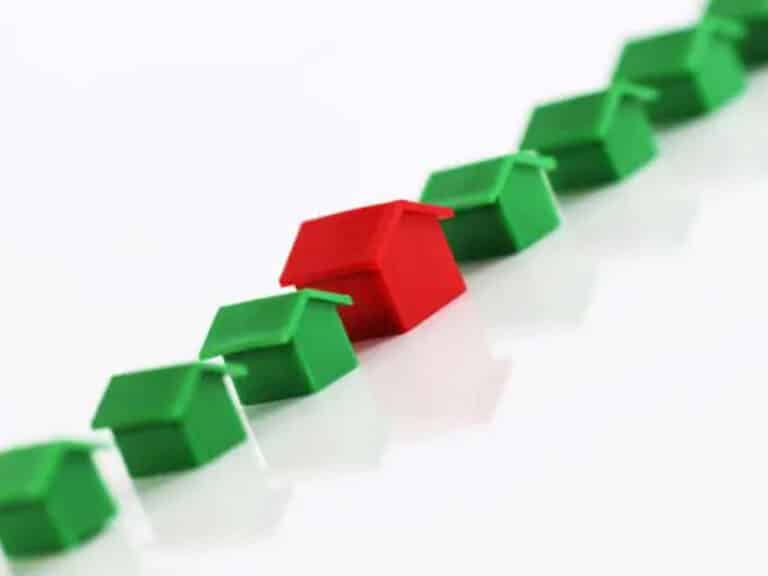
Boost Your Property Value
Commercial real estate valuations are often based on the net operating income (NOI) that a building generates for an owner. By installing a solar power system, you can lower electricity costs to boost NOI, increasing your property value. Our experts can discuss your specific application and available installation locations to help you determine if solar panels are worth it for your business.
Commercial Solar Power Incentives & Financing Management
Government incentives, solar grants, and financing options can help you get the most out of your investment. When you work with Tick Tock, we evaluate your solar solution and customize your financing options, helping you apply for grants, find applicable incentives, and manage your upfront investment.
5-Year Accelerated Depreciation (MACRS)
The Modified Accelerated Cost Recovery System (MACRS), established in 1986, recovers a business’ investments in certain property, for tax purposes, over a specified period through annual deductions. The IRS classifies solar PV equipment as 5-year property, allowing a commercial taxpaying entity to expense or write-off a solar investment quickly.
Illinois Smart Inverter Rebate
As Illinois makes a strong push to get more energy from renewable sources, the state has rolled out several incentives to move its energy portfolio towards solar and wind resources. These incentives include a rebate from Ameren or Comed when purchasing smart inverters for your solar panel installation.
Solar Renewable Energy Credits (SRECs)
SRECs provide an outstanding solar incentive that helps an owner recoup a solar system’s investment. In Illinois, SRECs can potentially cover 20% to 40% of your total solar investment. SRECs accrue as solar electricity is generated and are typically paid out quarterly for commercial projects or at other intervals defined by each State.
Illinois Distributed Generation (DG) Rebate
This incentive became available in 2024 in Ameren & Comed territories to incentivize the addition of energy storage. Pairing battery energy storage with solar can help capture excess daytime solar production and discharge in the evening when sunshine isn’t available and helping the electrical grid.
Ready to Start?
Request a free quote today
Tick Tock Energy is ready to help you invest in a clean solar energy system on your property, capture lucrative solar incentives, reduce long-term electricity costs, and and enhance the value of your property. To discuss your power needs with one of our solar consultants, request an initial consultation and quote today.
Tick Tock has helped business owners across Illinois, Indiana & Missouri to enhance the value of their property and reduce their utility costs with solar power systems. We can assist with opportunities in the greater Midwest. Explore our recent installations below.
Tick Tock Customers Are
Thumbs up for solar
700 kW Solar for Koerner Distributing, LLC
